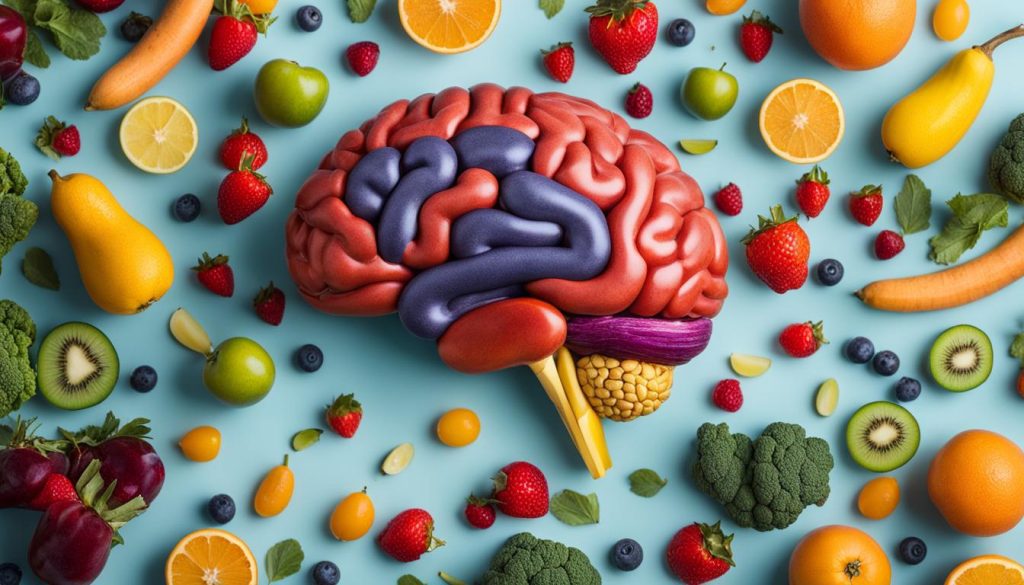Are you looking to enhance your memory and cognitive function? You may have heard about the potential benefits of B12 supplements. Vitamin B12 is known for its role in promoting brain health and memory improvement. However, before diving into any supplement regimen, it’s essential to consult with a doctor to ensure its safety and efficacy.
B12 supplements can provide isolated quantities of this crucial vitamin, but it’s important to note that the FDA does not require supplement labels to disclose potential interactions with other drugs. Additionally, overdosing on vitamins can be toxic. Therefore, it’s vital to approach supplements cautiously and prioritize a well-rounded approach to brain health.
To boost your memory naturally, it’s crucial to focus on a healthy lifestyle. This includes maintaining a proper diet that is rich in essential nutrients, engaging in regular exercise, getting sufficient sleep, participating in brain training exercises, and fostering social connections. These factors play a significant role in supporting brain health and memory function.
Key Takeaways:
- Vitamin B12 supplements may have potential benefits for memory and cognitive function.
- Consult with a doctor before starting any supplement regimen.
- Supplement labels may not disclose potential interactions with other drugs.
- A healthy lifestyle, including a proper diet, regular exercise, sufficient sleep, brain training exercises, and socialization, is crucial for brain health.
- Supplements should be supplemental rather than primary sources of nutrients.
The Importance of Omega-3 Fatty Acids for Memory
Omega-3 fatty acids play a crucial role in brain function and memory. These essential nutrients have been linked to improved cognitive function, memory, and reaction times.
Research suggests that omega-3s may also have a protective effect against Alzheimer’s disease and help prevent depression and dementia.
One of the best sources of omega-3 fatty acids is fatty fish such as salmon, trout, and herring. These fish contain high levels of docosahexaenoic acid (DHA) and eicosapentaenoic acid (EPA), two types of omega-3s that are particularly important for brain health.
Other sources of omega-3s include flaxseed, soybeans, nuts, and omega-3 supplements. Incorporating these foods into your diet can help ensure an adequate intake of omega-3 fatty acids, supporting brain function and memory.
The Role of Vitamin D in Memory and Cognitive Function
Vitamin D plays a crucial role not only in maintaining bone health but also in supporting memory and cognitive function. Adequate levels of vitamin D have been linked to a reduced risk of mental health conditions such as depression, schizophrenia, Alzheimer’s disease, and dementia.
Unfortunately, about 1 billion people worldwide suffer from vitamin D deficiency, which can have detrimental effects on memory and cognitive function. To ensure optimal vitamin D levels, it is important to incorporate both sunlight exposure and vitamin D-rich foods into your daily routine.
Sunlight is the best natural source of vitamin D. Spending time outdoors, especially during peak hours, allows your body to synthesize vitamin D naturally. Additionally, cold-water fish, egg yolks, milk, and cereals fortified with vitamin D are excellent dietary sources.
If you live in areas with limited sunlight or have difficulty absorbing nutrients, vitamin D supplements can be a valuable option. Consult with your healthcare provider to determine the appropriate dosage and duration of supplementation based on your individual needs.

The Effects of Vitamin B12 on Memory and Mood
Vitamin B12 plays a significant role in maintaining optimal brain health, making it essential for memory enhancement and mood regulation. This vital nutrient offers numerous mental benefits, including improved memory, increased energy levels, enhanced learning abilities, and a better overall mood.
To ensure an adequate intake of vitamin B12, it’s important to incorporate natural animal products into your diet, such as fish, poultry, and dairy. Additionally, whole grains and high-fiber cereals are excellent sources of this brain-boosting vitamin. However, specific individuals may be more prone to B12 deficiency, such as older adults, vegetarians or vegans, and those with absorption issues. For these individuals, supplementing with vitamin B12 can be a beneficial way to fill the nutrient gap and support cognitive function.
By providing your brain with the necessary nutrients, vitamin B12 acts as a powerful brain booster. It enhances memory by promoting the efficient synthesis of neurotransmitters, which are crucial for transmitting signals between brain cells. Moreover, vitamin B12 contributes to the production of red blood cells, ensuring that your brain receives a sufficient supply of oxygen and nutrients necessary for optimal cognitive performance.
In addition to memory improvement, vitamin B12 also influences your mood. Research has shown that low levels of vitamin B12 can be associated with symptoms of depression and anxiety. By maintaining adequate levels of this essential nutrient, you can support a positive mood and overall well-being.
Ultimately, incorporating vitamin B12 into your diet or supplement routine can provide significant cognitive benefits, ranging from memory enhancement and increased energy levels to improved learning capabilities and better mood regulation. However, it’s important to consult with a healthcare professional before making any significant dietary changes or starting a supplement regimen.
Exploring Other Memory-Boosting Supplements
While certain supplements like ginkgo biloba (search) and vitamin E (search) have been suggested to slow or prevent memory loss, the evidence for their effectiveness is not strong. Clinical studies (search) have shown mixed results, and the benefits of these supplements may be limited to specific groups or certain stages of cognitive decline. It’s important to consult with a doctor before taking any memory-boosting supplements.
The Limitations of Memory-Boosting Supplements
While memory-boosting supplements can offer some potential benefits, it’s important to understand their limitations. These supplements should be seen as supplemental rather than primary sources of nutrients. The research on their effectiveness is mixed, and it’s important to note that there is no single vitamin that can magically enhance memory.
One important aspect to consider is the lack of FDA regulation for supplements. Unlike medications, supplements do not have to meet the same strict standards for safety and efficacy. As a result, the quality and effectiveness of memory supplements can vary greatly. It is crucial to exercise caution and consult with a healthcare professional before introducing any new supplements into your routine.
Instead of relying solely on memory supplements, it is advisable to focus on maintaining a healthier lifestyle. A balanced diet, rich in fruits, vegetables, whole grains, and lean proteins, provides essential vitamins and minerals that support brain health and memory function. Regular exercise and physical activity have also been shown to improve cognitive function and memory. Adequate sleep, stress management, and staying socially active are equally important for overall brain health.
Incorporating these lifestyle changes into your daily routine can have a more significant and long-lasting impact on memory and cognitive function than relying solely on memory supplements. While memory supplements may offer some benefits, they should be seen as an addition to, rather than a replacement for, a healthier lifestyle.
Tips for Improving Memory Naturally
In addition to supplements, there are natural ways to improve memory and cognitive function. As I mentioned earlier, maintaining a healthy lifestyle is key. One approach that has shown promise is following the Mediterranean diet. This diet emphasizes plant-based foods, fish, and olive oil, which have been associated with improved memory and brain health.
Regular exercise is another important factor in memory improvement. Physical activity increases blood flow to the brain, promoting the growth of new brain cells and improving memory function. So, find activities that you enjoy, whether it’s going for a walk, swimming, or practicing yoga. Aim for at least 30 minutes of exercise most days of the week.
Adequate sleep is crucial for memory consolidation. During sleep, your brain processes and stores information, enhancing your ability to recall it later. Aim for 7-9 hours of quality sleep each night to support optimal memory function.
Maintaining a strong support network is also beneficial for memory enhancement. Social interaction and staying engaged with others can help stimulate your brain and keep it active. Whether it’s spending time with loved ones, joining social clubs, or volunteering, make an effort to connect with others regularly.
Engaging in brain-stimulating activities can also improve memory. Puzzles, crosswords, reading, learning new skills, or picking up a new hobby can all challenge your brain and enhance memory function. So, set aside some time each day to exercise your mind.

To recap, a healthy lifestyle, including following the Mediterranean diet, regular exercise, sufficient sleep, maintaining a support network, and engaging in brain-stimulating activities, can all contribute to memory improvement. Remember, it’s important to take a holistic approach to enhance memory naturally and support overall brain health.
Lifestyle Choices that Affect Memory
Certain lifestyle choices can have a significant impact on memory and cognitive function. When it comes to preserving our brain health, one of the factors we need to consider is our diet. Consuming fried food, for example, has been linked to cardiovascular system damage, which in turn can have an adverse effect on brain health and memory.
Studies have shown that individuals who consume a diet high in fried foods may experience memory decline at a faster rate than those who follow a healthier eating pattern. The negative impact of fried food on cardiovascular health can lead to reduced blood flow to the brain, which can hinder cognitive function and increase the risk of memory-related conditions such as Alzheimer’s disease and dementia.
To protect our brain health and support optimal memory function, it is essential to make healthier dietary choices. Opting for a balanced diet that includes nutritious foods such as fruits, vegetables, whole grains, lean proteins, and healthy fats can provide the necessary nutrients to support brain function and memory.
Alongside a healthy diet, it’s important to incorporate regular physical exercise into our daily routine. Engaging in activities that get our heart rate up and promote cardiovascular health can help improve blood flow to the brain, supporting memory and cognitive function over time. Exercise has also been shown to have a positive impact on mood and overall well-being, further contributing to brain health.
Conclusion
After exploring the potential of memory supplements, it is clear that they can offer some benefits for memory enhancement. Supplements such as B12, omega-3 fatty acids, vitamin D, and vitamin E have shown promise in certain cases. However, it is important to note that the research on their effectiveness is mixed, and they should be viewed as supplemental rather than primary sources of nutrients.
Before embarking on any supplement regimen, it is crucial to consult with a healthcare professional. They can provide valuable guidance on the appropriate dosage, potential interactions with other medications, and any risks associated with individual health conditions.
While supplements can play a role in memory improvement, they are not a magic solution. It is essential to focus on maintaining a healthy lifestyle to support brain health and memory function. This includes following a balanced diet, engaging in regular exercise, ensuring sufficient sleep, and participating in brain-stimulating activities.
Remember, the FDA does not regulate supplements, and individual results may vary. Therefore, it is important to approach memory supplements with a holistic perspective, combining them with a healthy lifestyle for optimal results in achieving natural memory improvement.
FAQ
Are B12 supplements effective for improving memory?
B12 supplements have been touted as a potential way to enhance memory and cognitive function. While supplements can provide isolated quantities of specific vitamins and minerals, it’s important to consult with a doctor before starting any supplement regimen. The FDA does not require supplement labels to disclose potential interactions with other drugs, and overdosing on vitamins can be toxic. It’s crucial to focus on a healthy lifestyle, including a proper diet, regular exercise, sufficient sleep, brain training exercises, and socialization, as these factors play a significant role in brain health.
How do Omega-3 fatty acids affect memory?
Omega-3 fatty acids are essential nutrients for brain health and memory. They have been linked to improved brain function, memory, and reaction times. Omega-3s may also reduce the risk of Alzheimer’s disease and prevent depression and dementia. Fatty fish like salmon, trout, and herring are excellent sources of omega-3s. Other sources include flaxseed, soybeans, nuts, and omega-3 supplements.
What is the role of Vitamin D in memory and cognitive function?
Vitamin D is not only crucial for bone health but also plays a role in memory and cognitive function. Maintaining healthy levels of vitamin D may prevent the onset of mental health conditions such as depression, schizophrenia, Alzheimer’s disease, and dementia. However, about 1 billion people worldwide do not get enough vitamin D. Sunlight is the best source of vitamin D, but it can also be obtained through foods like cold-water fish, egg yolks, milk, and cereal. Vitamin D supplements can be beneficial for those who cannot get enough sun exposure or have difficulty absorbing nutrients.
How does Vitamin B12 affect memory and mood?
Vitamin B12 has numerous mental benefits, including improved memory, increased energy, easier learning, and better mood. Natural animal products like fish, poultry, and dairy, as well as whole grains and high-fiber cereals, are good sources of vitamin B12. However, older adults, vegetarians or vegans, and individuals with absorption issues may benefit from supplementing with vitamin B12 to ensure adequate intake.
Do other memory-boosting supplements work?
While certain supplements like ginkgo biloba and vitamin E have been suggested to slow or prevent memory loss, the evidence for their effectiveness is not strong. Clinical studies have shown mixed results, and the benefits of these supplements may be limited to specific groups or certain stages of cognitive decline. It’s important to consult with a doctor before taking any memory-boosting supplements.
Can memory be improved naturally without supplements?
While memory-boosting supplements may have some potential benefits, it’s essential to remember that they should be supplemental rather than primary sources of nutrients. The research on the effectiveness of these supplements is mixed, and no single vitamin is a silver bullet for memory improvement. Moreover, supplements are not regulated by the FDA, so their safety and efficacy may vary. Instead of solely relying on supplements, it’s crucial to focus on maintaining a healthy lifestyle, including a balanced diet and regular exercise, to support brain health and memory function.
What are some natural ways to improve memory?
In addition to supplements, there are natural ways to improve memory and cognitive function. Following a healthy lifestyle, such as the Mediterranean diet, which emphasizes plant-based foods, fish, and olive oil, has been associated with improved memory. Regular exercise, sufficient sleep, maintaining a support network, and engaging in brain-stimulating activities like puzzles or new hobbies are also beneficial for memory enhancement.
Can certain lifestyle choices affect memory?
Certain lifestyle choices can harm memory and cognitive function. Consuming fried food has been linked to cardiovascular system damage, which can impact brain health. Poor diet and a sedentary lifestyle are risk factors for Alzheimer’s disease and dementia. Making healthier dietary choices and engaging in regular physical exercise can help delay memory decline and protect brain health.
What should I conclude about memory supplements?
Memory supplements, including B12, omega-3 fatty acids, vitamin D, and vitamin E, hold promise for memory enhancement in certain cases. However, the research on their effectiveness is mixed, and supplements should be supplemental rather than primary sources of nutrients. It’s crucial to consult with a doctor before starting any supplement regimen and focus on maintaining a healthy lifestyle, including a balanced diet, regular exercise, sufficient sleep, and brain-stimulating activities, for natural memory improvement. Remember that supplements are not regulated by the FDA, and individual results may vary.




